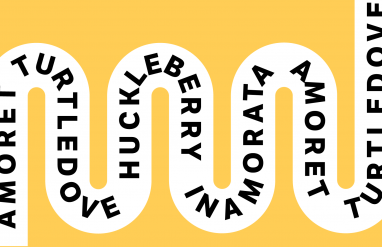I mean, we all know pepperoni pizza is best, right? I mean, come on! The only people who dislike pepperoni are those pineapple lovers who, I mean, wouldn’t know a good pizza if it fell on their head!
While this example is admittedly a little silly, it shows how phrases like I mean can slip into sentences without really adding much to the conversation. There is certainly nothing wrong with that, but it can make your writing and speech a little less formal than you might have intended. So, what other options do we have? There are actually more than you might think!
I mean and other filler words
The phrase I mean is an example of what are known as filler words. Filler words, which go by many other names, are words and phrases that are used in sentences for reasons other than the literal meaning of the words themselves. Some other examples of filler words that are used similarly to I mean include you know, like, well, and just.
Talking about I mean specifically, the phrase is often used as a pause, as an enhancing phrase, or to simply make a sentence longer. Often, filler words don’t serve much purpose at all and can be removed from a sentence without changing its meaning. For example, we can remove I mean from the sentence The movie wasn’t very good, but, I mean, the sequel might be better without changing the meaning at all.
However, filler words aren’t bad. They do have several important uses in casual and informal speech and writing. In speech, filler words give a speaker a chance to slow down and catch their breath, establish a friendly tone with an audience, or give their brain a chance to think about what to say or digest what someone else has said. In writing, they are used to make dialogue sound more natural or to allow a writer to establish an informal voice to try and connect with readers, especially younger readers who use filler words more often than other audiences.
What to do with filler words like I mean
In casual and formal speech/writing, there isn’t anything wrong with using filler words every now and again. In fact, most people agree that using filler words makes speech sound more natural than speech that doesn’t use them at all.
That being said, there are alternatives to using filler words if you think you might be using them just a bit too much in your speech. Let’s look at a few different ways you could handle filler words like I mean.
Remove filler words: The easiest and most direct option is to simply get rid of the filler words entirely. In many situations, the filler words weren’t really doing much in the sentence, so taking them out won’t change what you were trying to say.
- Filler word sentence: Benny painted his house pink, and, I mean, I kinda like it.
- Filler words removed: Benny painted his house pink, and I kinda like it.
Use a short pause: Rather than slip a filler word or two in there to buy time, you could simply just pause for a second to catch your breath or quickly consider what you want to say. Similar to an enhancing filler word, a pause can also catch someone’s attention and indicate that your next words are important or dramatic.
Replace filler words with adverbs, transitional phrases, or more formal alternatives: Most of the time, there are other words and phrases that can serve the same role as a filler word without making a sentence sound too informal or casual. Let’s take a look at a couple of examples:
- Original: You shouldn’t talk about his sister like that. I mean, it’s not nice.
- Replaced: You shouldn’t talk about his sister like that. Honestly, it’s not nice.
- Original: We could go into the bear cave if, I mean, we had no other options.
- Replaced: We could go into the bear cave if it turned out that we had no other options.
Formal alternatives and synonyms for I mean
While filler words are typically not a problem in casual and informal writing and speech, the same can’t be said for formal contexts. In formal writing and speech, filler words are often viewed as making a person seem unprepared, unprofessional, or inexperienced. It is thought that filler words like I mean will make your writing or speech weaker and/or less effective.
That being the case, you’ll typically need to remove I mean completely or swap it out for something else. You can use the following list for some great alternatives for I mean that you can use in your formal writing and speech:
- In other words
- Putting it another way
- To put it another way
- Putting it simply
- For one thing
- That is
- That is to say
- After all
- As a matter of fact
- For one thing
- For lack of a better word
- In a nutshell
- We can say that
- What I intend to show is that
- It is clear to see that
- This means that
- What I mean to say is
- What I mean is
- What I am trying to say is
Take our quiz now!
Now that you’ve filled up on superior alternatives to saying “I mean,” discover how much you’ve learned by taking our quiz on these synonyms. In no time, you’ll be showing everyone that you mean business when it comes to clear communication.













